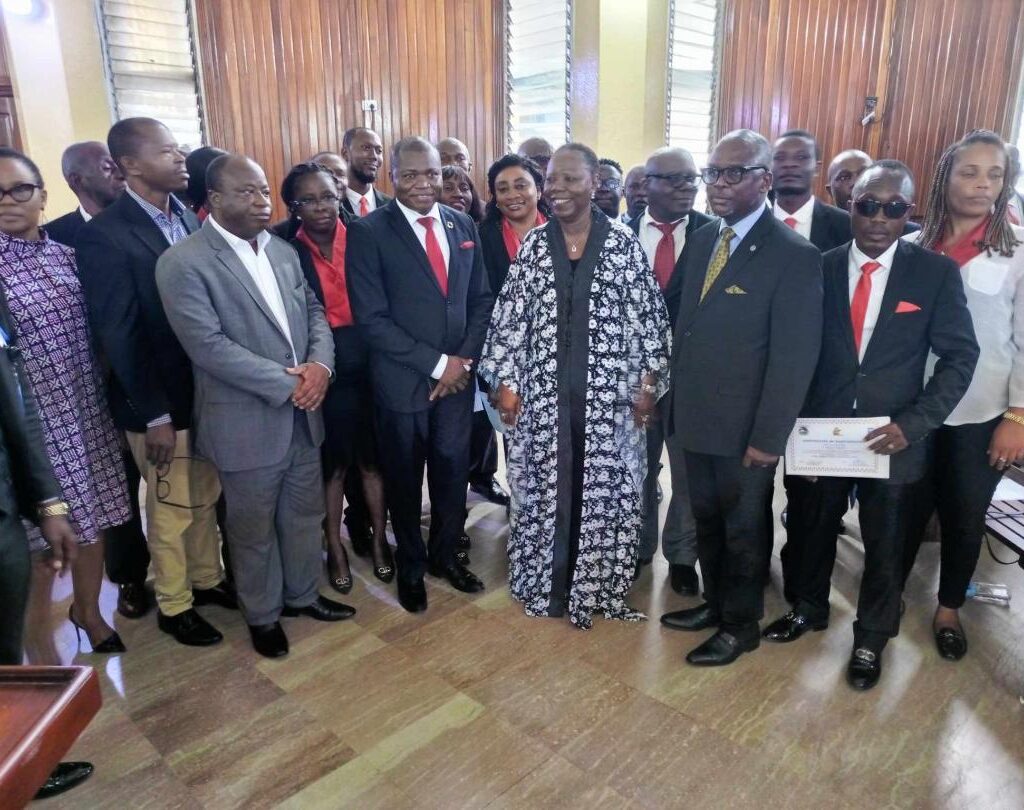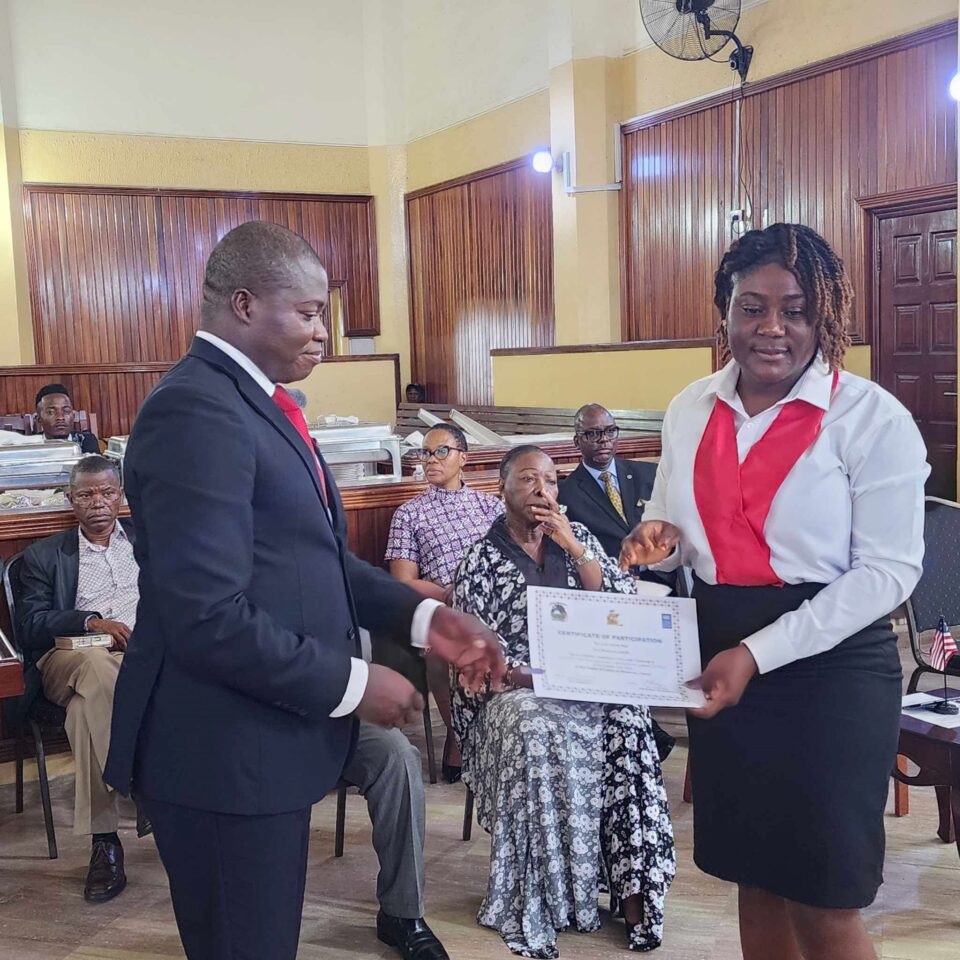Monrovia, Liberia- “Digital public infrastructure represents the ‘roads and bridges’ of our new era on which countries can ‘transport’ a range of vital services to citizens, from e-health and e-government services to online education and social protection,” says UNDP Liberia Resident Representative a.i Louis Kuukpen.
Kuukpen made the statement recently at the close of the Judicial Case Management Training supported by UNDP for 55 Clerks and Assisting Clerks of Courts at the Judiciary. He said digitalization is increasingly becoming an everyday public tool for doing business and supporting service delivery, according to a UNDP press release.

“Consequently, the digital space for accessing information including, the transfer of information and judicial case management has become inevitable, and Liberia cannot afford to be left behind,” Kuukpen noted.
He added that going digital enables the judiciary to infinitely store, copy, and distribute data without depletion, and at very low costs. It is expected to increase the efficiency in case disposal and reduce case backlog and pre-trial detention.
“We have no doubt that this system will contribute to the efficiency of the criminal justice system, to track and measure the progress regarding case disposal. The innovative nature of the system is that it tracks cases online in real time to enable the judiciary to take measures to respond through the deployment of the appropriate resources, personnel, and assets,” the UNDP Liberia Resident Representative a.i. concluded.
As part of the support to improve the Criminal Justice System in Liberia, UNDP’s Joint Rule of Law Programme has supported the conception, design, development, and rollout of the online Case Management Information System (CMIS) for both the Judiciary and the Prosecution Department of the Ministry of Justice as well as the Liberia National Police.
In her remarks at the closing ceremony, the Chief Justice of Liberia Her Honor Sie-A-Nyene G. Yuoh said the Judiciary is undergoing a full rebranding process to make it an institution attractive and transparent to Liberians to increase access to Justice of which the training is a part.
Chief Justice Yuoh emphasized that the CMIS system will transform the Judiciary from a manual case filing system to a digital filing system that is efficient, transparent, less time-consuming, makes information readily accessible, and reduces the financial burden on stationery and supplies.
She urged trainees to take the process seriously if they will remain a part of the rebranding process and appreciated UNDP for the support to the Case Management System, the extension of the Magisterial Sitting Program to the Gbarnga Prison to reduce prison overcrowding, and the support for the Judiciary to fast-track electoral cases.
Speaking earlier, the Minister of Justice Counsellor Musa Dean mentioned that the online training has provided significant support to the Ministry of Justice for the Liberia National Police, Liberia Immigration Services, the Alternative Dispute Resolution Program, the Prosecution Department, the Bureau of Correction and Rehabilitation, and the Planning and Program Management Unit.
Counselor Dean said this will go a long way in increasing access to justice and security as a key objective. He then pledged the government’s unflinching support to ensure that the gains made are sustained to improve the living standard of Liberians, especially the vulnerable population.

